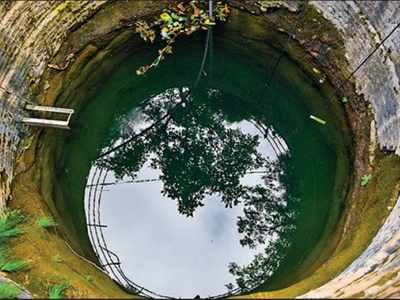The Federal Government has established 12 water quality reference laboratories across Nigeria as part of efforts to improve water quality monitoring and surveillance.
The Minister of Water Resources and Sanitation, Prof. Joseph Utsev, announced this at the opening ceremony of the inaugural Annual Water Quality Conference in Abuja on Tuesday.
Utsev, represented by the Permanent Secretary, Mr Richard Pheelangwah, said the laboratories were established under the National Water Quality Reference Laboratories and Monitoring Network Programme.
He also noted the introduction of the Freshwater Restoration and Source Water Protection Programme, aimed at safeguarding Nigeria’s water sources, including rivers, lakes and artificial reservoirs.
Utsev said access to safe water is a priority under President Bola Tinubu’s Renewed Hope Agenda, with the government committed to tackling sector challenges through partnerships and innovation.
He added that quality plays a vital role in public health, socio-economic development and environmental sustainability.
He recalled that “according to the 2021 Water Supply, Sanitation, and Hygiene National Outcomes Routine Monitoring (WASHNORM) Report, 67 per cent of Nigeria’s population has access to basic water supply services.
“However, a significant proportion still lacks access to safely managed drinking water, with 25 per cent of the population relying on unimproved or surface water sources, which pose a high risk of waterborne diseases.”
He acknowledged that poor sanitation remains a major concern, as open defecation and indiscriminate waste disposal continue to contaminate water sources.
The minister stated that the ministry is leveraging modern technologies and collaborating with both local and international partners to enhance water quality management.
He reaffirmed government’s commitment to eradicating open defecation and ensuring improved water and sanitation standards across the country.
“To further enhance water quality assurance, the Nigerian Standard for Drinking Water Quality, the Nigerian Standards for Ambient Water Quality, and the soon-to-be-finalised Nigerian Standard for Irrigation Water Quality have been established.
“Additionally, the Community Water Safety Plan has been introduced to empower rural communities with the knowledge and tools needed to prevent water contamination.
“The ministry has also commenced the production of hydrogen sulphide vials for microbial water quality assessment, which is currently being tested in UNICEF-supported states,” he said.
The Director of Water Quality Control and Sanitation, Mrs Elizabeth Ugoh reaffirmed government’s commitment to providing safe drinking water for all Nigerians, promoting public health and economic productivity.
She emphasised that ensuring water safety is a public health, economic and environmental priority.
“We all know that contaminated water is a major cause of waterborne diseases such as cholera, typhoid, and diarrhoea, which hinders socio-economic development.
“It is our collective responsibility to develop and implement robust policies, institutional frameworks and innovative solutions to improve water safety nationwide,” she said.
UNICEF WASH Manager, Mr Chiranjibi Tiwari, warned that two-thirds of Nigeria’s water sources are contaminated with E. coli and Salmonella, causing severe waterborne diseases like cholera.
He cited a 2021 WASHNORM data, reporting 111,000 cholera cases and 3,600 deaths, with outbreaks persisting, including in Lagos, a traditionally low-risk area.
He warned that contaminated water threatens public health, education and productivity, stressing the need for urgent, coordinated action to achieve SDG 6 on Universal Clean Water Access.
He also linked safe water access to President Bola Tinubu’s Renewed Hope Agenda, warning that failure to act would hinder national progress.
Tiwari called for stronger collaboration among development partners, NGOs, civil society, academia, media and the private sector.
He urged stakeholders to form structured partnerships, particularly with the private sector, to develop household water treatment technologies and public awareness campaigns to promote safer water practices.
The UNESCO representative, Dr Enang Momah, warned that water pollution could pose serious risks to health, food production, ecosystems and economic growth.
She highlighted the impact of untreated wastewater, industrial chemicals and emerging pollutants, exacerbated by climate change.
Without improved water monitoring, she cautioned, 4.8 billion people could face health risks by 2030, stressing the urgency of pollution control and better wastewater treatment to prevent diseases like cholera and schistosomiasis.
She reaffirmed UNESCO’s commitment to supporting Nigeria through its Intergovernmental Hydrology Programme (IHP) and technical expertise.
Representatives of WaterAid, Water Correspondents Association of Nigeria, ministries of health and environment, and other partners delivered goodwill messages.
NAN


